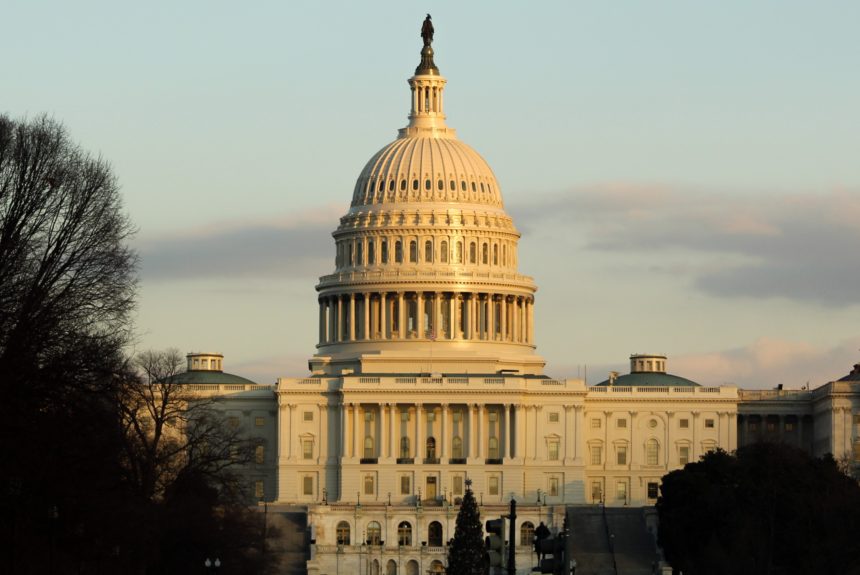By John Hart
President Reagan famously said, “Government isn’t the solution to our problem; government is the problem.”
Conservatives have long believed this is true for any challenge – economic or environmental.
Progressives are now boasting that passage of President Joe Biden’s $1.9 trillion stimulus bill has vanquished this view from American politics. The Guardian said the bill marked the “end of four decades of Reaganism” while the Washington Post described the bill’s passage as a “seismic shift” in U.S. politics.
“It’s been a major shift. People have gone from being anti-government, to beyond being even neutral on it, to thinking: ‘We need the government; it has to help us,’” former U.S. Representative Barney Frank (D-MA) told the Washington Post, “You have a new consensus in America — that the government has an important role, and that Ronald Reagan was wrong. For the first time in my lifetime, people are saying that the government has done too little rather than doing too much.”
But, in politics, nothing is permanent. Trends move in cycles. The level of certitude with which a political party declares an end to an era is directly proportional to the odds that the departing era will return with even greater force than before. Just as Karl Rove aspired to build a durable governing majority for Republicans only to lose Congress to Democrats in 2006 and the White House in 2008, Frank’s triumphalism will likely be torpedoed by events.
The simple reason is that today’s majority party claims to love science but hates math. Too many Democrats are deficit deniers who have built a delusional alternative economic reality that isn’t going to stand up well to coming stress tests.
In the run up to Biden’s stimulus, many Democrats created a revisionist history and justification around the 2009 Obama stimulus (the $787 billion American Recovery and Reinvestment Act). Democrats convinced themselves the reason they lost seats in 2010 wasn’t because their policies were flawed but because they failed to spend enough money. They wouldn’t make that same mistake twice, so they spent twice as much money.
If the performance of the Obama stimulus is any guide, the Biden stimulus won’t be a panacea. Valerie A. Ramey, an economist at the University of California, surveyed ten years of literature following the Recovery Act and found that the multiplier effect or “bang for the buck” of the Obama stimulus was most likely a net negative (a neutral multiplier effect is 1). She writes, “The bulk of the estimates across the leading methods of estimation and samples lie in a surprisingly narrow range of 0.6 to 1.1.”
Ramey added that government stimulus spending does “not stimulate additional private activity and may actually crowd it out.”
Harvard professors Dr. Robert Barro and Charles Redlick likewise found that each dollar of stimulus spending creates less than a dollar of economic output. In fact, every dollar in government stimulus only creates between 40 and 70 cents in economic activity. In other words, that gap is fiscal flatulence or economic methane the government emits when it wastes money.
Consider a simple thought experiment: Is giving a company $100 million to hire 1,000 workers to dig ditches and then fill them up optimal stimulus, or is it wiser to give to let a company keep $100 million to create something like, say, Microsoft Windows, an iPhone or a Tesla?
Many of the real-life projects funded by Obama’s stimulus weren’t far from this analogy. U.S. Senators Tom Coburn (R-OK) and John McCain (R-AZ) teamed up on a series of oversight reports following Obama’s stimulus that questioned the wisdom of spending taxpayer funds on things like replacing a sidewalk that leads to a ditch, studying the sex lives of college students, renovating a closed visitors center and funding puppet shows.
In 2021, Democrats convinced themselves that more spending for the sake of spending was the answer.
Even more troubling is the left’s fascination with a fanciful fiscal policy called Modern Monetary Theory, which says wealth isn’t created by private sector creativity and entrepreneurial ingenuity (i.e. people inventing goods and services other people want to buy) but by government force and the will to borrow and print money. Suggesting that wealth is whatever government decides is a form of magical thinking, the age during which children between 2-7 tend to believe in Santa Claus, or politicians believe money can grow on a tree called government.
Events may not be gentle to this view. Just as 2020 taught the world the wisdom of pandemic preparedness, 2021 may give us a lesson in inflation preparedness. Excessive government spending and borrowing can lead to inflation, according to some economists. The warning signs are already present in areas like housing and food. Inflation coupled with higher interest rates could delay or derail the recovery America desperately needs.
Policymakers on the right should make the case that living within our means is not austerity. Instead, being smart fiscal stewards gives us the freedom to take meaningful action in other areas like climate. Thirty-five years ago, President Reagan’s Grace Commission found that one-third of all government spending could go away and it wouldn’t be missed. He’s still right. Recycling government waste and redirecting savings to targeted infrastructure upgrades, basic research and development and lower tax rates is a win-win-win proposition for people and the planet.
The views and opinions expressed are those of the author’s and do not necessarily reflect the official policy or position of C3.
